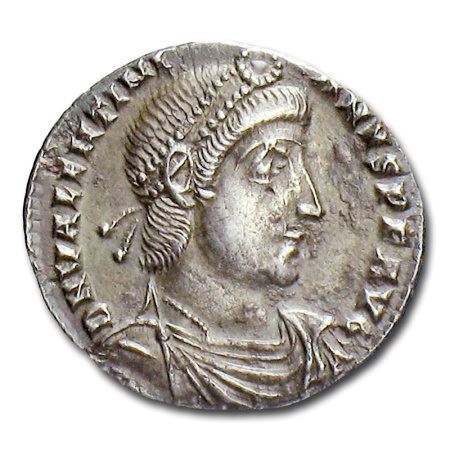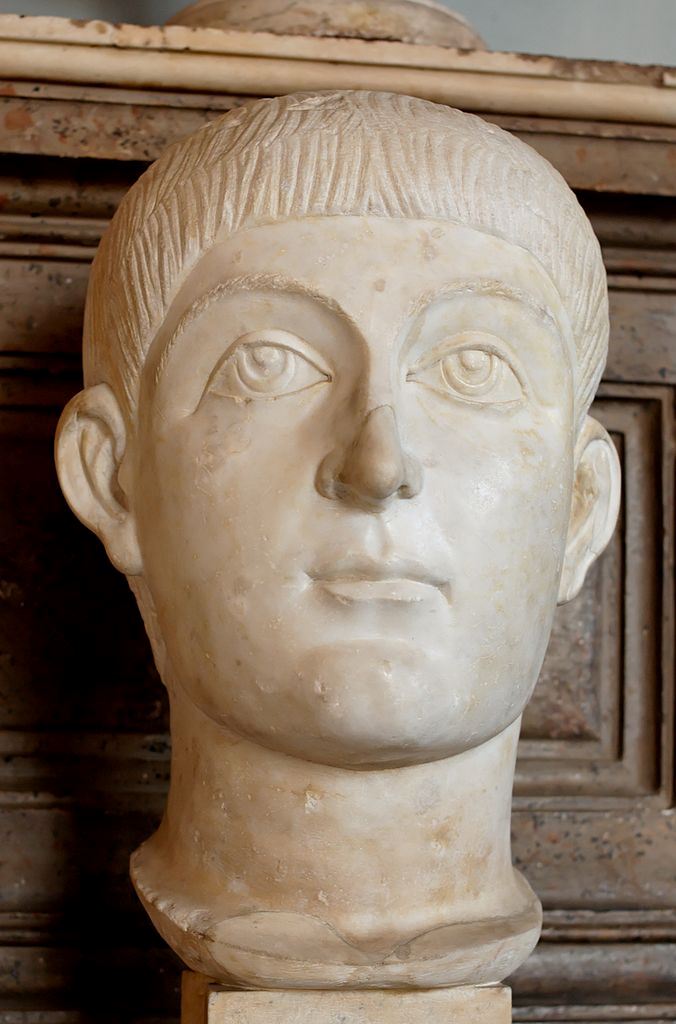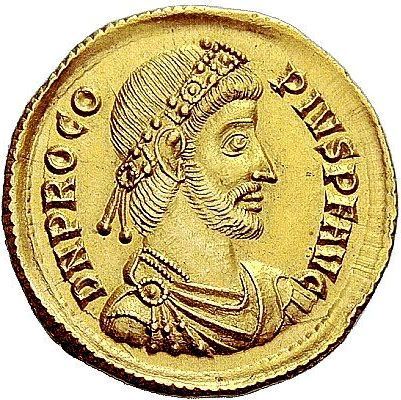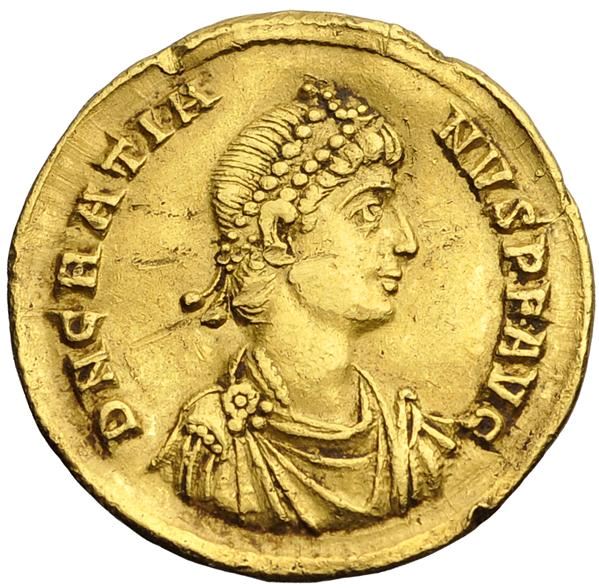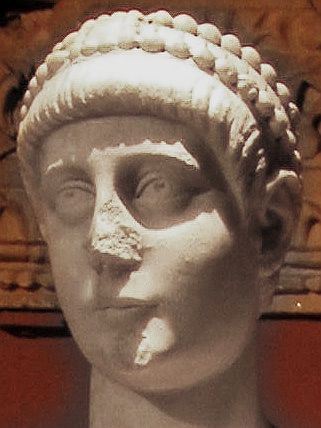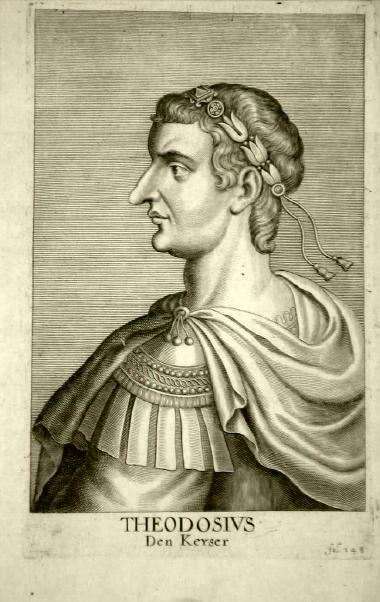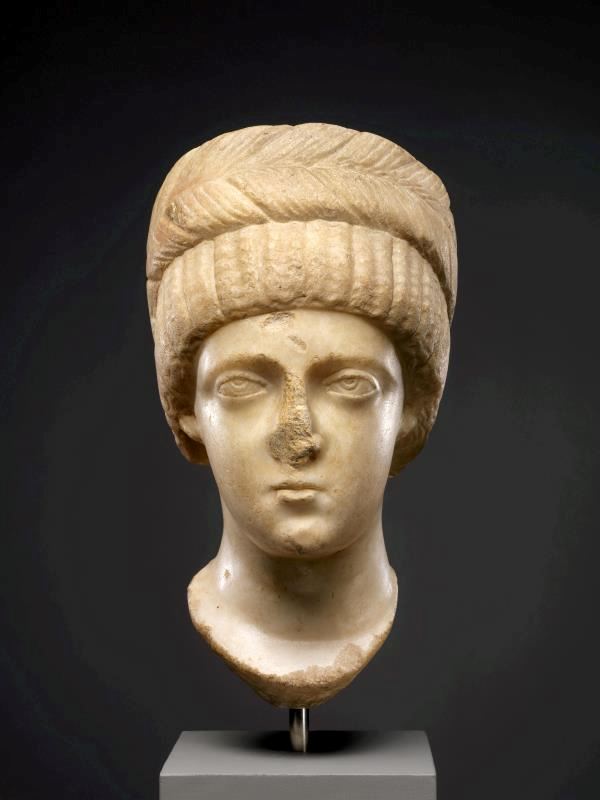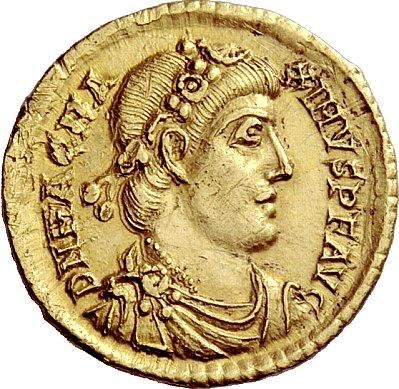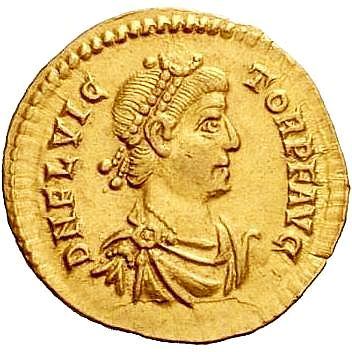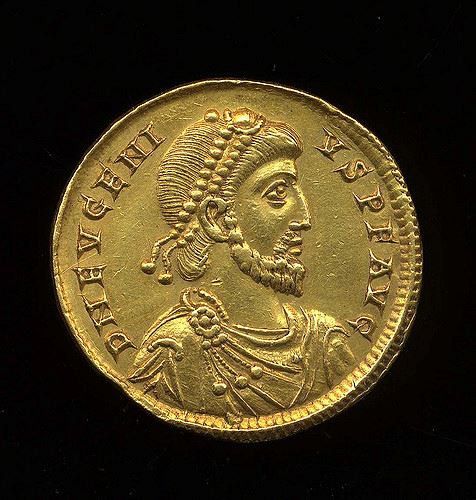The Late Roman Empire category covers the final years of the Roman Empire as a united realm; from the ascencion of Valentinian I on 364 AD to the death of Theodosius I in 395 AD, the last emperor to rule both the western and eastern parts of the empire.
This is not to say that the Empire was united during this period of history; the brothers Valentinian I and Valens ruled separate halfs of the empire in a fashion superficially similar to the brothers Honorius & Arcadius, the sons of Theodosius I. Still, Valentinian dynasty and Thodosius I represent the last competent emperors who even attempted to pursue policies which benefitted both halfs of the Empire and after their deaths the two halves would drift slowly but surely apart.
Militarily, this period was characterized by the invasions and revolts of the Goth with the disastrous Battle of Adrianople at the center of the stage; Valens was killed alongside two thirds of the Roman army. The goths would have free access to plundering the countryside for years, and much of the Roman army would henceforth consist of Germanic mercenaries. This would lead to further problems down the road, especially in the West.
This is not to say that the Empire was united during this period of history; the brothers Valentinian I and Valens ruled separate halfs of the empire in a fashion superficially similar to the brothers Honorius & Arcadius, the sons of Theodosius I. Still, Valentinian dynasty and Thodosius I represent the last competent emperors who even attempted to pursue policies which benefitted both halfs of the Empire and after their deaths the two halves would drift slowly but surely apart.
Militarily, this period was characterized by the invasions and revolts of the Goth with the disastrous Battle of Adrianople at the center of the stage; Valens was killed alongside two thirds of the Roman army. The goths would have free access to plundering the countryside for years, and much of the Roman army would henceforth consist of Germanic mercenaries. This would lead to further problems down the road, especially in the West.
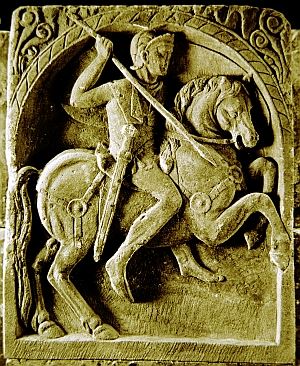
Flavius Valentinianus Augustus, also known as Valentinian the Great, was Roman emperor from 364 to 375. Upon becoming emperor he made his brother Valens co-emperor, giving him rule of the east while Valentinian retained the west.
Valentinian fought successfully against the Alamanni, Quadi, and Sarmatians. His brilliant general Count Theodosius defeated a revolt in Africa and the Great C...
Valentinian fought successfully against the Alamanni, Quadi, and Sarmatians. His brilliant general Count Theodosius defeated a revolt in Africa and the Great C...
Flavius Julius Valens Augustus was Eastern Roman Emperor from 364 to 378.
He was given the eastern half of the empire by his brother Valentinian I after the latter's accession to the throne.
He was a careful administrator, but very suspicious of plots and without any military merit whatsoever.
In 378, Valens fought the combined forces of the Visigoths at Adrianop...
He was given the eastern half of the empire by his brother Valentinian I after the latter's accession to the throne.
He was a careful administrator, but very suspicious of plots and without any military merit whatsoever.
In 378, Valens fought the combined forces of the Visigoths at Adrianop...
Procopius was a member of the Constantinian dynasty and a usurper against Valentinian I and Valens in 365-366 AD.
According to Zosimus, Julian had given Procopius an imperial robe. When Jovian was acclaimed Emperor, Procopius gave him the robe and asked to be allowed to retire to private life. Jovian accepted.
After Jovian's death, Valentinian I and Valens tried to arrest Pro...
According to Zosimus, Julian had given Procopius an imperial robe. When Jovian was acclaimed Emperor, Procopius gave him the robe and asked to be allowed to retire to private life. Jovian accepted.
After Jovian's death, Valentinian I and Valens tried to arrest Pro...
Flavius Gratianus Augustus was Roman emperor from 367 to 383.
He was the son of Emperor Valentinian I by Marina Severa, and was born at Sirmium. He ruled alongside his father from 367 to 375, alongside his brother Valentinian II from 375 to 379, and finally alongside Theodosius I from 379 to 383, as Augustus in the west.
By using foreign bodyguards, and appearing in public in...
He was the son of Emperor Valentinian I by Marina Severa, and was born at Sirmium. He ruled alongside his father from 367 to 375, alongside his brother Valentinian II from 375 to 379, and finally alongside Theodosius I from 379 to 383, as Augustus in the west.
By using foreign bodyguards, and appearing in public in...
Flavius Valentinianus Augustus was Roman Emperor from AD 375 to 392.
Valentinian himself seems to have exercised no real authority, and was a figurehead for various powerful interests: his mother, his co-emperors, and powerful generals.
He was thoroughly dominated by the Frankish general Arbogast. When Valentinian formally dismissed Arbogast, the latter ignored the order, pub...
Valentinian himself seems to have exercised no real authority, and was a figurehead for various powerful interests: his mother, his co-emperors, and powerful generals.
He was thoroughly dominated by the Frankish general Arbogast. When Valentinian formally dismissed Arbogast, the latter ignored the order, pub...
Flavius Theodosius Augustus, also known as Theodosius the Great, was Roman Emperor from AD 379 to AD 395.
Theodosius was the last emperor to rule over both the eastern and the western halves of the Roman Empire. He issued decrees that effectively made Orthodox Nicene Christianity the official state church of the Roman Empire. He neither prevented nor punished the destruction of prominen...
Theodosius was the last emperor to rule over both the eastern and the western halves of the Roman Empire. He issued decrees that effectively made Orthodox Nicene Christianity the official state church of the Roman Empire. He neither prevented nor punished the destruction of prominen...
Aelia Flavia Flaccilla was Roman empress and first wife of the Roman Emperor Theodosius I. She was of Hispanian Roman descent.
During her marriage to Theodosius, she gave birth to two sons — future Emperors Arcadius and Honorius — and a daughter, Aelia Pulcheria. She was titled Augusta, as her coinage shows.
She died early in 386, aged 30.
During her marriage to Theodosius, she gave birth to two sons — future Emperors Arcadius and Honorius — and a daughter, Aelia Pulcheria. She was titled Augusta, as her coinage shows.
She died early in 386, aged 30.
Flavius Magnus Maximus Augustus was Western Roman Emperor from 383 to 388.
In 383, as commander of Britain, he usurped the throne against emperor Gratian, and by negotiation with emperor Theodosius I, he was made emperor in Britannia and Gaul the next year while Gratian's brother Valentinian II retained Italy, Pannonia, Hispania, and Africa.
In 387, Maximus' ambitions led hi...
In 383, as commander of Britain, he usurped the throne against emperor Gratian, and by negotiation with emperor Theodosius I, he was made emperor in Britannia and Gaul the next year while Gratian's brother Valentinian II retained Italy, Pannonia, Hispania, and Africa.
In 387, Maximus' ambitions led hi...
Flavius Victor Augustus was the son of Magnus Maximus. He was proclaimed an Augustus by his father and ruled nominally from 384 to his death in 388.
Originally considered a usurper, Maximus and Victor gained recognition of their legitimacy for their co-reign by Theodosius in 386. In 387, Maximus campaigned in Italy against Valentinian II. Victor was left behind in Trier. His father defe...
Originally considered a usurper, Maximus and Victor gained recognition of their legitimacy for their co-reign by Theodosius in 386. In 387, Maximus campaigned in Italy against Valentinian II. Victor was left behind in Trier. His father defe...
Flavius Eugenius was a usurper in the Western Roman Empire against Emperor Theodosius I. Though himself a Christian, he was the last Emperor to support Roman polytheism.
A former teacher of grammar and rhetoric, as well as magister scrinorum, Eugenius was an acquaintance of the Frankish magister militum and of the de facto ruler of the Western Roman Empire, Arbogast.
Followin...
A former teacher of grammar and rhetoric, as well as magister scrinorum, Eugenius was an acquaintance of the Frankish magister militum and of the de facto ruler of the Western Roman Empire, Arbogast.
Followin...

